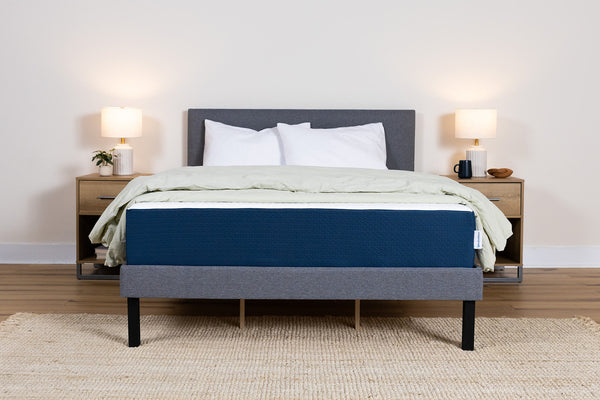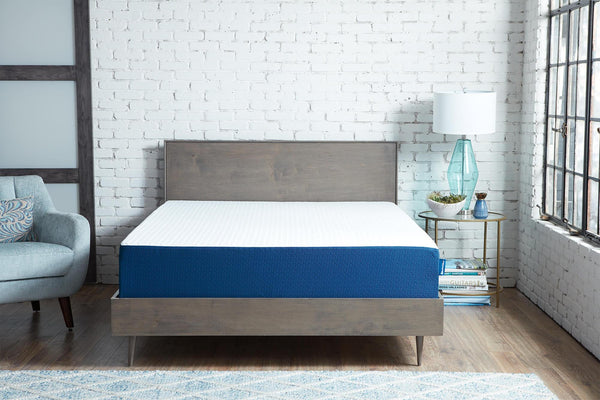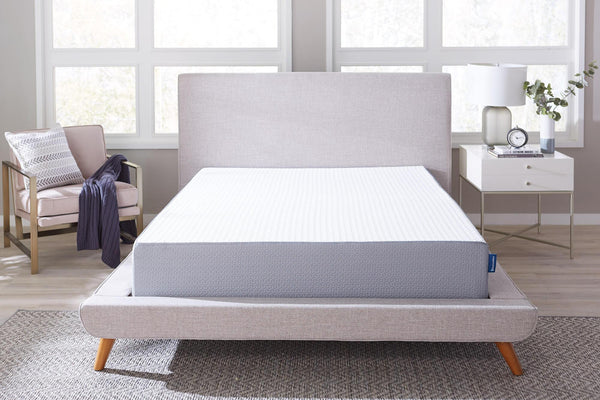Creating Bedtime Routines for Children & Adults

What do you usually do before bed? If you have trouble falling asleep or staying, it may be time to re-evaluate your nightly routine. Sleep is imperative to our physical and mental health, so consistent sleep is one of the most important forms of self-care. However, according to the CDC, ⅓ of Americans are not getting enough sleep on a regular basis. Work schedules, everyday stress and TV binges can all contribute to a lack of sleep. Fortunately there are simple ways to combat this. One easy yet effective way to achieve a better sleep schedule is to create a consistent bedtime routine. A bedtime routine has been shown to benefit both children and adults alike
The Importance of A Routine
Humans are creatures of habit and our habits become routines over time. The more we maintain certain habits, the more solidified we are in our routines. For example, what time you wake up, how often you check your phone, what time you brush your teeth, and getting dressed every day are all part of your daily routine. The daily routines we perform become engrained in our lifestyle, so why not curate a nightly bedtime routine to signal your brain that it is time to relax and prepare for sleep?
According to the National Center for Biotechnology Information, a good routine promotes success. According to this research, those who do not practice any daily habits are generally less successful in achieving their goals. Routines can create a sense of manageability in our lives, making people more equipped to cope with life’s general unpredictability. A routine generates comfort and stability whilst promoting order and direction in a person’s life. This is why routines are so important to our overall well-being.
The most common reason people have a hard time sleeping is stress, which can lead to insomnia. A way to alleviate some of this stress is to establish routine. Routines provide the balance and comfort a hectic life may need. For the same reason, a bedtime routine can help reduce the stress and anxiety keeping you awake. A bedtime routine can be defined as a set of activities performed every night about 30-60 minutes before actually going to bed. If your mind is focused on these activities, you’ll be less likely to entertain anxious thoughts that may stimulate your brain and prevent you from sleeping. The habits you routinely do before bed will eventually become signals for your brain that it is almost time to sleep. The brain will begin to recognize your routine as a precursor to sleep.
Establishing a Sleep Routine for Children
It is recommended that sleep routines be implemented during childhood. It is more beneficial and easier to learn a bedtime routine during childhood to then carry into adulthood, rather than learning a new routine as an adult. Studies have shown that a consistent bedtime routine can help infants and children fall asleep faster and stay asleep throughout the night. A good sleep schedule is crucial for a child’s brain development.
Make bedtime the best time. What's your little one's favorite bedtime story? pic.twitter.com/qqVlJjV1vU
— BedInABox.com (@BedInABox) February 22, 2024
Understandably, it may be challenging for parents to establish a routine for their children because young children like to fight or avoid sleep. However, there are a few simple tips you can follow to help develop a bedtime routine for a child:
- A good bedtime routine doesn’t need to be long. It can be around 30 minutes or so and can be adjusted according to your child’s needs.
- Resist the delay tactics that your child may use. It’s pretty common for a child to request things like “One more story, please?” or “Can I just play 10 more minutes?” As a parent, you have to be firm and consistent in saying “No.”
- Reward your children for every good night they have. Sometimes a child needs incentive to follow through with their bedtime routine. You can establish some sort of reward system.
- Try to have both parents present if possible.
For most children, the tips listed above should work in creating a full-proof bedtime routine. Once that sleep routine has been established, your children will experience the benefits. Such benefits include:
- A good connection with their circadian rhythm
- Readiness for school and an overall better academic performance
- A sense of security
- A deeper bond with parents
Carrying Out a Sleep Routine Into Adulthood
Research has found that children with established bedtime routines are most likely to carry those routines into adulthood. Although certain habits may change over time, a routine is still in place. While it may be easier to start practicing sleep routines as children, adults can still learn to incorporate them into their lives, as well. Here are some simple tips for developing a good bedtime routine:
- Decide on a set bedtime and then plan your routine around that specific time. You can use our Sleep Calculator to help determine an optimal bedtime.
- Avoid using electronics right before bed because the blue light emitted causes the brain to suppress melatonin production.
- Take a warm bath. As the water cools off, it mimics the drop of body temperature you have while sleeping.
- Listen to music or something like white noise. 62% of people do this and have found better sleep.
- Read a good book.
- Write a to-do list or journal so that you can clear your thoughts
- Lower the thermostat so that your body will adapt to the lower temperature
These are just some suggestions to think about when creating your own bedtime routine. The point of these exercises is to help you unwind and relax so that your body and mind are ready to be tucked in.
All ages can benefit from having a bedtime routine and it has been proven that these routines contribute to better sleep. Keep in mind that in addition to a consistent sleep routine, you should maintain a good sleeping environment. This can involve turning down the lights, adjusting the thermostat or using an aromatherapy diffuser. Having a good, supportive mattress can make all the difference, too. For example, your child might be ready to climb into a twin or twin xl big kid bed that provides more evenly distributed support that their toddler bed. Or maybe you just need more sleep space with a queen or a king memory foam mattress upgrade. So, with a good bedtime routine, a cozy sleep environment and a high quality mattress, you will be well on your way to getting better sleep.


